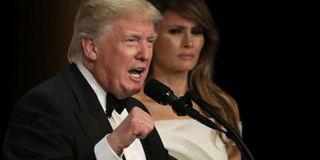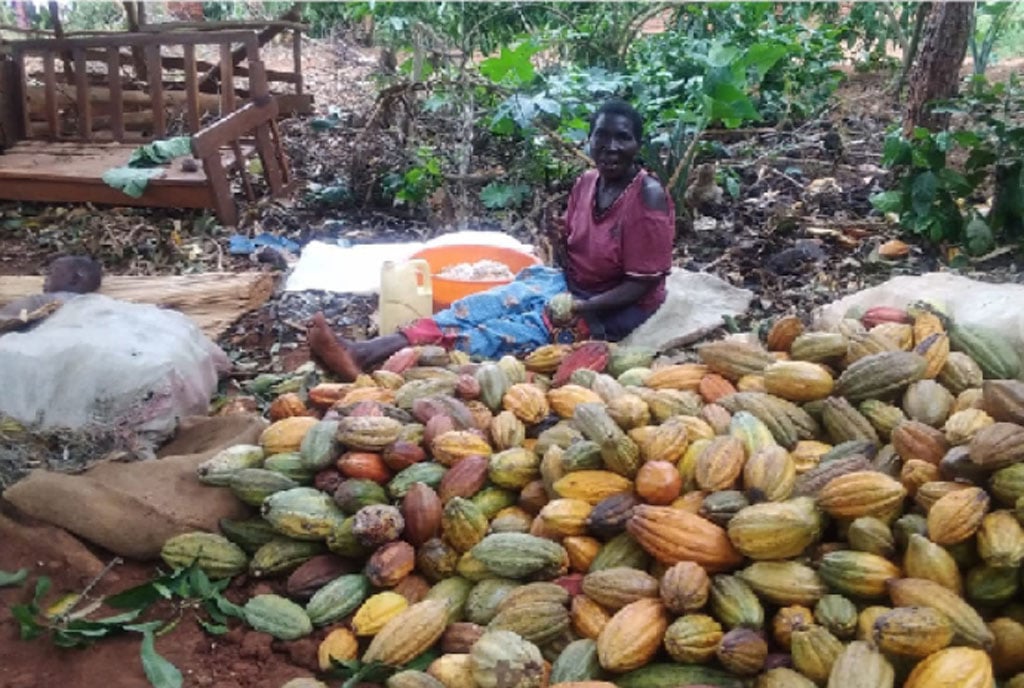Trump comes under fire at AU summit

Donald Trump.
What you need to know:
The guest-list at the summit spoke to a reluctance by the African Union to align itself with the new agenda in the West which formed Brexit in Britain and on which Mr Trump rode to power in the US
Addis Ababa. The decision by US president Donald Trump to ban nationals of seven Muslim-majority countries from entering America was yesterday criticised as the two-day summit of African leaders opened at the African Union headquarters in Addis Ababa, Ethiopia. The ‘temporary ban’ will last an initial period of 90 days.
Mr Trump has signed the order on January 27 banning immigrants from three African countries – Somalia, Libya and Sudan – from entering the US. The other countries whose citizens were banned from accessing the US are Iraq, Syria, Iran and Yemen. The seven countries have, according to 2015 World Bank estimates, at least 218 million people.
“The very country to which our people were taken as slaves has now decided to end refugees from some of our countries,” said Ms Nkosazana Dlamini Zuma, the outgoing chairperson of the European Commission. The Commission runs the day-to-day activities of the African Union and heads of state and governments were due to elect a successor to Ms Zuma by the time of filing this report.
Mr Antonio Manuel de Oliveira Guterres, the Secretary General of the United Nations who was attending the African Union Summit in that capacity for the first time, seemed to echo Ms Zuma’s concerns when he commended African countries for allowing refugees into their borders.
“African borders are open to those who need protection even when so many borders remain closed including those of the most developed nations,” Mr Guterres said.
The guest-list at the summit spoke to a reluctance by the African Union to align itself with the new agenda in the West on which informed Brexit in Britain and on which Mr Trump rode to power in the US.
Mr Mahmoud Abbas, the leader of the State of Palestine, was one of the high profile guests and he used the opportunity to observe that whereas Israel is courting several African countries for smoother bilateral relations, this should “not be done at the expense of the Palestinian people.
Mr Abbas restated Palestine’s objective as “to ensure sustainable peace through a two-state solution with Palestine and its capital at Jerusalem on one hand and Israel on the.” Jerusalem is one of the disputed areas which Israel has occupied, but Mr Abbas urged African leaders to press for a return to the 1967 borders between Israel and Palestine.
Israel built a wall along its border with Palestine arguing that it needed to defend its people from terrorists and it has continued to set up settlements for its people in disputed areas despite international condemnation and resolutions.
One such resolution is United Nations Security Council Resolution 2334 which was adopted on December 23, 2016, concerning the Israeli settlements in "Palestinian territories occupied since 1967, including East Jerusalem". Israel ignored it.
Mr Benjamin Netanyahu, the prime minister of Israel, has warmed up to Mr Trump’s rise to power, and the two leaders have already extended friendly tweets over their policies, particularly Mr Trump’s stated intention of building a border wall between his country and Mexico.
Also in attendance was Mr Salvador Valdes Mesa, the vice president of Cuba, who decried the continued economic blockade on his country by the US despite a normalization of relations shortly before Mr Barack Obama handed over to Mr Trump.
The two African presidents who spoke, outgoing AU chairperson Idriss Derby and his successor Alpha Conde, avoided the politically touchy subject of Mr Trump banning migrants to the US from the Muslim-majority countries.
For the chairperson of the AU Commission, the heads of state and government were due to choose from Ms Amina Mohamed of Kenya, Prof Abdoulaye Bathily from Senegal, Mr Moussa Faki Mahamat from Senegal, Equatorial Guinea’s foreign minister Agapito Mba Mokuy and Botswana’s Pelonomi Venson-Moitoi.
The election spilled over from the AU summit in Kigali last July when the leaders failed to choose one of three candidates, who included former vice president Specioza Wandira Kazibwe. Different countries said they had reservations about the competence of the candidates on offer and more than half of the countries abstained from the voting, denying any of the candidates the requisite two-thirds majority.
The leaders were also meant to discuss a report by Rwanda’s Paul Kagame on reforming the AU and proposals on how AU will be funded by Africans instead of depending on donor funding.
“We must make sacrifices to make this organisation and independent body and give it more credibility,” Mr Derby said.
Speaking of the need to reduce reliance on donor funding, the leaders might have been haunted by the fact that the magnificent resembling a space ship in which the session took place was built as a grant by China. Germany, another donor, last year handed over to AU another completed building, which was named after Julius Nyerere.
Liberia president Ellen Johnson Sirleaf, on behalf of the West African bloc Ecowas, received the plaque from Ms Zuma for mediating a peaceful exit of former Gambian leader Yahya Jammeh, who first conceded defeat to Mr Adama Barrow but turned around and tried to cling on.
Mr Barrow did not attend what would have been his maiden summit and he was congratulated in absentia, but Ghana's Nana Akufo-Addo was on hand to make his debut appearance.




